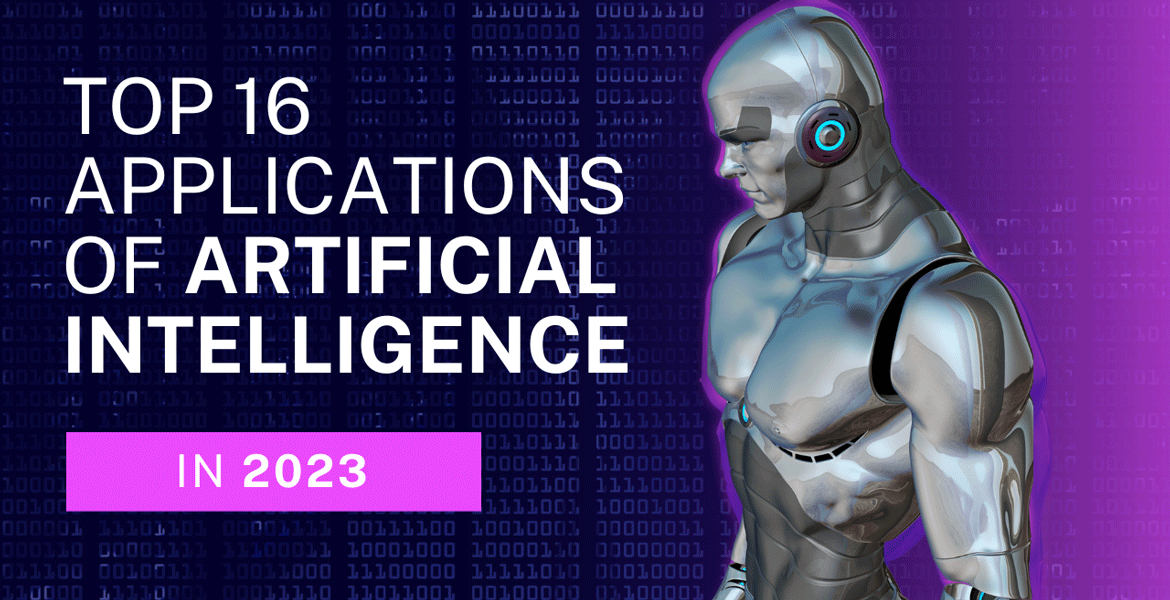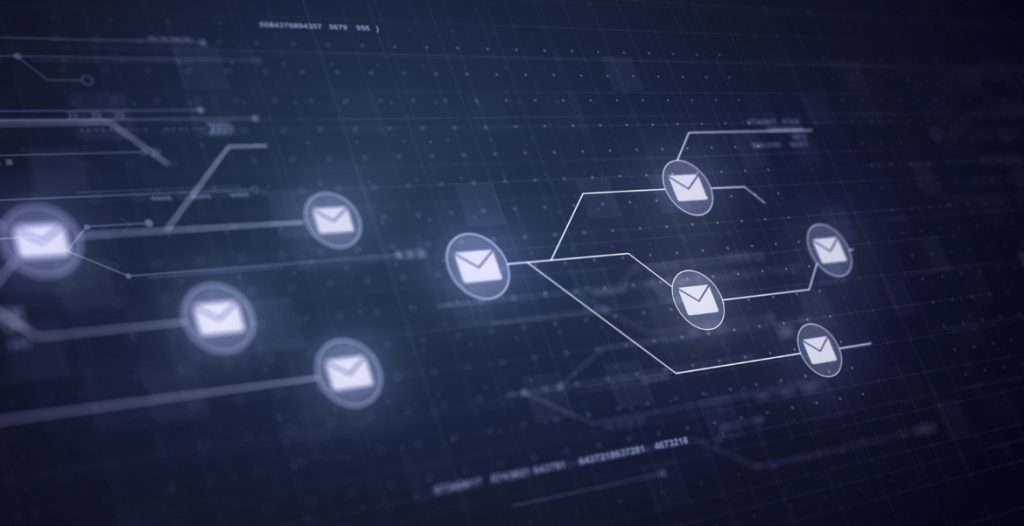Artificial Intelligence (AI) is truly revolutionizing the way we live and work. From healthcare to finance, agriculture to banking sector, gaming to space exploration, AI is already making an impact in numerous industries.
In this blog post we will dive into the world of AI and explore the different ways in which this technology is being used today. Whether you’re a tech enthusiast or simply curious about how AI is changing our daily life, this post will provide you with valuable insights into the exciting possibilities of artificial intelligence applications. So, join us on this journey!
Table of Contents
- AI Applications in Healthcare
- AI Applications in Finance
- AI Applications in Agriculture
- AI Applications in Education
- AI Applications in Ecommerce
- AI Applications in Manufacturing
- AI Applications in Cybersecurity
- AI Applications in Gaming
- AI Applications in Marketing
- AI Applications in Military
- AI Applications in Transportation
- AI Applications in Entertainment
- AI Applications in Civil Engineering
- AI Applications in Space
- AI Applications in IoT
- AI Applications in the Food Industry
- Conclusion
- Frequently Asked Questions
Artificial Intelligence Applications in Healthcare
Artificial intelligence is rapidly gaining popularity in the healthcare industry, and for good reason. The rise of AI in healthcare applications has led to numerous benefits, including improved efficiency, enhanced accuracy and better patient outcomes.

- Medical imaging. With the help of AI algorithms, medical professionals can now accurately analyze and interpret medical images, including X-rays, MRIs and CT scans, in a fraction of the time it would take a human expert. This has led to quicker and more accurate diagnoses, as well as faster treatment plans.
- Drug discovery. By utilizing machine learning algorithms, researchers can now analyze large datasets and identify potential drug targets, significantly reducing the time and resources required for drug development. This has resulted in the identification of new therapies for previously untreatable diseases, giving hope to patients and medical professionals alike.
- Predictive analytics. AI can be used to analyze large amounts of patient data to identify at-risk patients and predict potential health risks. This can help healthcare providers proactively intervene before a medical emergency occurs. This is especially helpful in chronic disease management, where early detection and treatment can have a significant impact on patient outcomes.
In conclusion, the applications of AI in healthcare are vast and have the potential to revolutionize the medical industry. From improved accuracy in medical imaging to more efficient drug discovery, AI is transforming the way healthcare professionals diagnose, treat and manage diseases. So, if you’re in the healthcare industry, it’s important to stay up-to-date on the latest trends in artificial intelligence applications in healthcare and explore how they can be applied to your practice.
Artificial Intelligence Applications in Finance
Artificial Intelligence has transformed the finance industry in recent years, bringing unprecedented levels of automation, efficiency and accuracy to the sector. Here are some ways AI is transforming finance.
- Fraud detection is an area where AI is being widely applied. By using machine learning algorithms, financial institutions have the capability to identify fraudulent activities in real-time and take appropriate measures to prevent financial losses. This has significantly reduced the instances of financial fraud, saving billions of dollars in losses.
- Customer service. AI-powered chatbots and virtual assistants are now being used by financial institutions to provide personalized and efficient customer service, including answering queries and assisting customers with their needs.
- Risk management, where machine learning algorithms are being used to analyze large datasets and identify potential risks. This has helped banks make better-informed decisions, resulting in better risk management and more accurate predictions.
- Loan underwriting. AI can assess the creditworthiness of loan applicants by analyzing their financial data and credit history.
- Financial planning. AI-powered tools can help individuals and businesses make smarter financial decisions by analyzing their income, expenses and investment portfolios.
All in all, the extensive range of artificial intelligence applications in financial services has the potential to revolutionize the finance sector, benefiting both companies and customers. From fraud detection to customer service and risk management, AI is transforming the way financial institutions operate.
Artificial Intelligence Applications in Agriculture
AI is helping improve agricultural practices in various ways:
- Precision farming involves the use of AI-powered sensors to gather data about soil conditions, weather patterns and other environmental factors to help farmers make informed decisions about planting, irrigation and fertilization.
- Crop monitoring involves the use of drones equipped with AI-powered cameras to monitor crop health and detect signs of disease or pests. This information is used to create a map of the field that helps farmers identify areas that require attention, saving time and resources.
- Yield prediction, where machine learning algorithms analyze data on crop yields from previous years, along with environmental and weather data, to make predictions about future yields. This enables farmers to make well-informed choices regarding crop planning, storage and transportation, leading to increased productivity and efficiency in agriculture.
To sum up, AI is transforming the agricultural sector by automating many of the repetitive and time-consuming tasks associated with farming, including planting, crop monitoring and harvesting. The applications of AI in agriculture bring numerous benefits to farmers: increased productivity, reduced environmental impact and better business decision-making.
Application of Artificial Intelligence in Education
AI transforms different fields, and education is no exception. By analyzing massive amounts of data and detecting patterns, AI is revolutionizing the traditional teaching and learning methods adopted by educators.
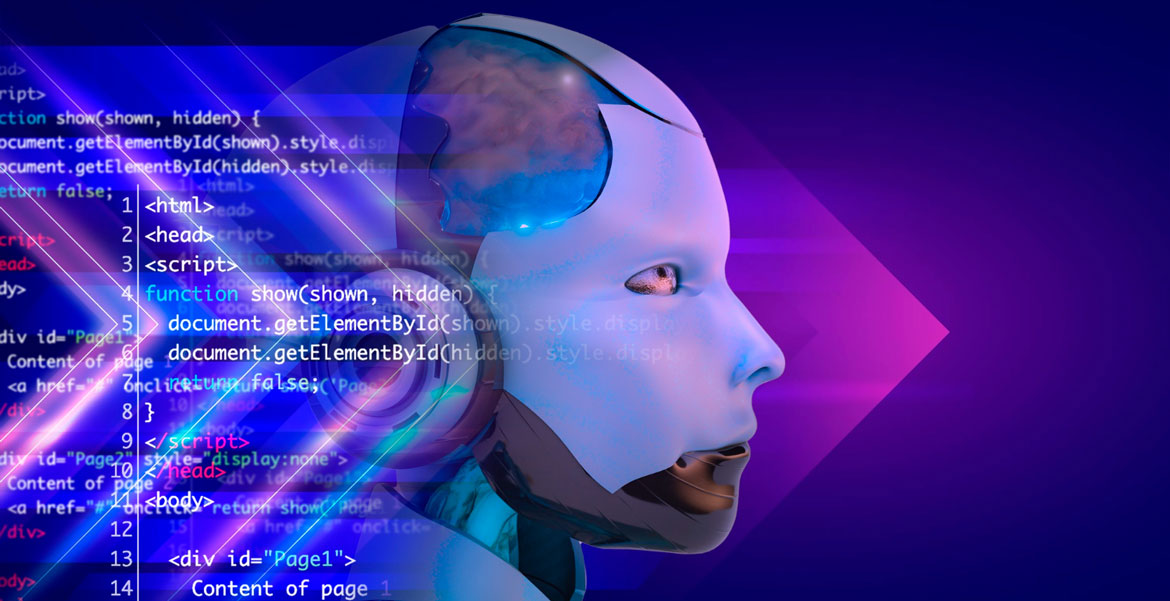
AI has numerous applications in the education system, from automating administrative tasks to personalizing learning experiences for students. One example is the use of AI-powered chatbots, which can provide instant support to students and reduce the workload of teachers. AI can also analyze data from student assessments to identify knowledge gaps and provide targeted interventions.
Moreover, AI can enable personalized learning experiences that cater to individual student needs and abilities. By analyzing data on each student’s learning style, AI can generate customized lesson plans and educational content. This not only improves learning outcomes but also increases student engagement and motivation.
In addition, AI can help educators predict which students are at risk of dropping out or falling behind, allowing for early intervention. This can help prevent students from slipping through the cracks and ensure that all students receive the support they need to succeed.
In short, applications of artificial intelligence in education have the potential to transform the way we teach and learn. From automating administrative tasks to providing personalized learning experiences, AI is offering educators with the tools they need to improve learning outcomes and support student success. As the technology continues to evolve, we can expect to see even more exciting developments in the future of AI in the education sector.
Application of Artificial Intelligence in Ecommerce
Artificial intelligence has the potential to transform the way ecommerce operates. By analyzing massive amounts of data, AI can provide valuable insights that businesses can use to enhance the customer experience and optimize operations. Here are some of the ways AI is transforming ecommerce:
- Personalization. Artificial intelligence can analyze customer data to create personalized experiences, such as personalized product recommendations and targeted marketing campaigns.
- Inventory management. AI can optimize inventory management by predicting demand patterns and automating restocking processes.
- Fraud detection. AI can help prevent fraud by analyzing customer behavior and identifying unusual patterns.
- Chatbots. AI-powered chatbots can provide customers with instant support and assistance, improving customer satisfaction and reducing the workload of customer service representatives.
- Pricing optimization. Artificial intelligence helps analyze pricing data and adjust prices in real-time based on market demand, competition and other factors.
Overall, the application of AI in ecommerce can lead to increased efficiency, cost savings and improved customer satisfaction.
Application of Artificial Intelligence in Manufacturing
AI has numerous applications in the manufacturing industry. Here are a few examples of them:
- Predictive maintenance. AI-powered systems can analyze data from sensors and other sources to predict when equipment is likely to fail, allowing manufacturers to perform maintenance and repairs before breakdowns occur.
- Quality control. AI can help improve product quality by identifying defects and anomalies during the manufacturing process, allowing manufacturers to make real-time adjustments.
- Supply chain optimization. Artificial Intelligence can be used to optimize the supply chain, by predicting demand and adjusting production accordingly. This can reduce waste, improve efficiency and ultimately lower costs.
- Robotics. AI-powered robots can perform repetitive tasks with precision and speed, freeing up human workers to focus on more complex tasks.
AI has the potential to revolutionize the manufacturing industry by making it more efficient, cost-effective and innovative. As AI technology continues to develop, we can expect to see even more progress in the manufacturing sector.
Application of Artificial Intelligence in Cybersecurity
AI enables organizations to proactively identify and respond to cyber threats. One of the key applications of AI in cybersecurity is in the area of threat detection. AI algorithms are able to analyze vast amounts of data and identify patterns that indicate the presence of potential cyber threats, such as malware or hacking attempts.
Another important application of AI in cybersecurity is in the area of identity and access management. AI can be used to analyze user behavior and detect anomalies that may indicate unauthorized access to sensitive data or systems. This can help organizations to prevent data breaches and other security incidents before they occur.
Artificial intelligence can also be used to automate certain cybersecurity tasks, such as vulnerability scanning and patch management. By automating these tasks, organizations can ensure that their systems are up to date and protected against the latest threats.
In a word, AI provides significant benefits to the field of cybersecurity, enabling organizations to better protect their networks, systems and data from a wide range of threats.
Application of Artificial Intelligence in Gaming
AI applications in gaming have become increasingly prevalent in recent years. Game developers use AI to create more realistic game characters, improve game physics and mechanics and enhance game environments.
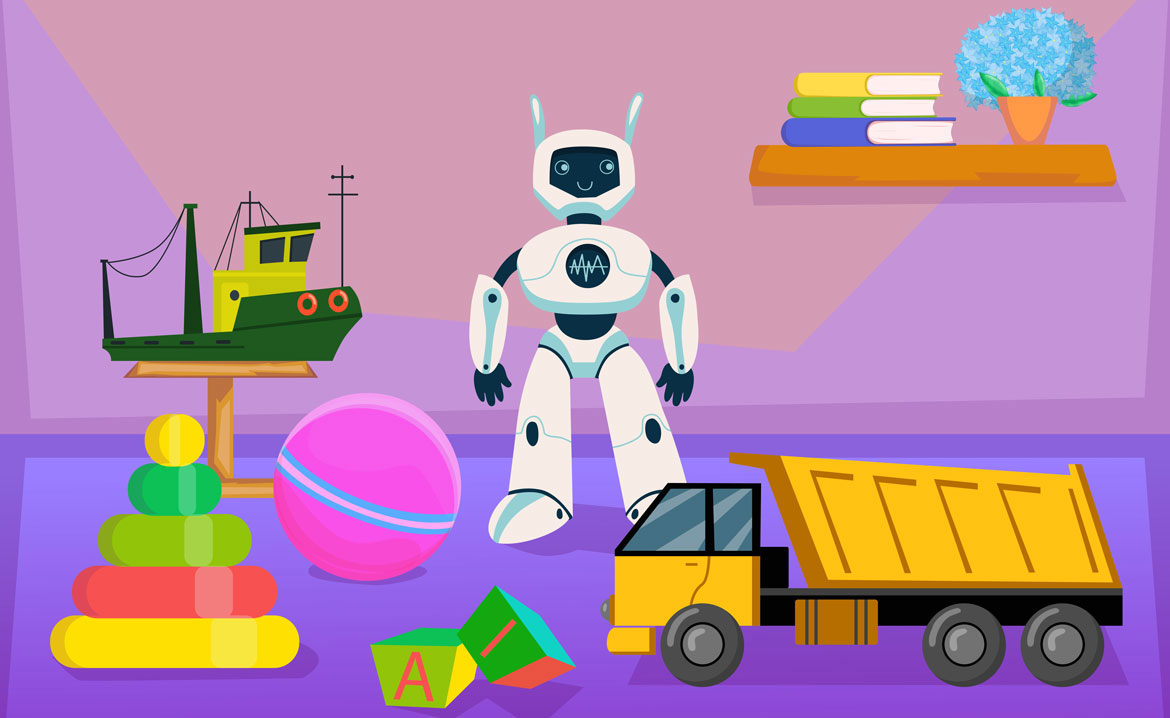
Artificial intelligence is also used in game testing, where it can simulate the behavior of millions of players to identify potential bugs or performance issues.
One example of AI application in gaming is the use of machine learning algorithms to create more intelligent non-player characters (NPCs). These NPCs can learn from their interactions with players and adjust their behavior accordingly, providing a more immersive gaming experience.
Another application is the use of AI to generate game content, such as levels, puzzles or quests, which can reduce development time and improve game replayability.
Application of Artificial Intelligence in Marketing
Artificial intelligence helps enhance customer experience, optimize advertising campaigns and improve business outcomes. One of the most significant applications of AI in marketing is predictive analytics, which helps businesses forecast customer behavior and identify potential opportunities.
Another application in marketing is natural language processing (NLP), which allows businesses to analyze customer sentiment and generate personalized content. AI-powered chatbots and virtual assistants are also being used to provide customer support and improve the overall user experience. In addition, machine learning algorithms are helping businesses analyze and interpret large amounts of data, providing insights that can be used to optimize marketing strategies and improve ROI.
In conclusion, the use of AI in marketing is expected to continue to grow, providing businesses with new and innovative ways to engage with their customers and drive growth.
Application of Artificial Intelligence in Military
Artificial intelligence has various applications in the military sector. One such application is the use of unmanned aerial vehicles (UAVs) or drones for surveillance and reconnaissance missions. Drones equipped with AI can detect and identify targets, monitor suspicious activities and movements and provide real-time data to military commanders, which can be used to make informed decisions.
Another application of AI in the military is the development of autonomous weapons, such as drones or robots, which can operate without human intervention. These weapons can analyze data, make decisions and act accordingly, which could potentially reduce the risk of human casualties.
Additionally, artificial intelligence can also be used to predict and prevent equipment failures by analyzing data from sensors and predicting when maintenance is required. This can help reduce downtime and increase the readiness of military equipment.
However, there are also ethical concerns regarding the use of AI in the military, particularly with the development of autonomous weapons. There are concerns that these weapons may malfunction or make incorrect decisions, leading to unintended consequences and potential harm to civilians.
Application of Artificial Intelligence in Transportation
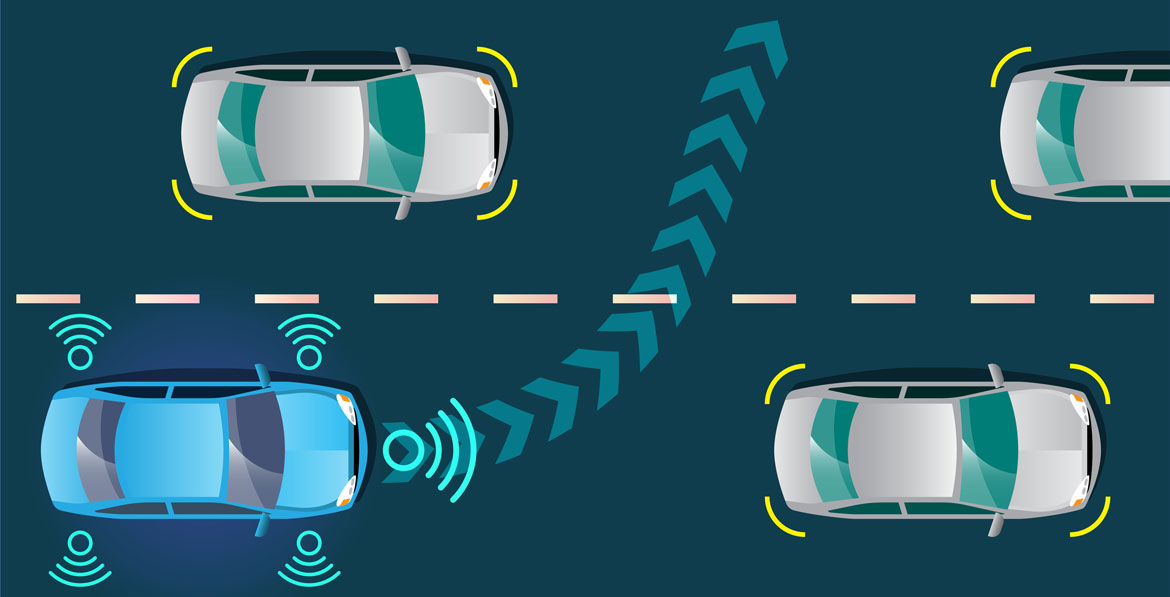
Artificial intelligence has various applications in the transportation industry. One of the most significant is the development of autonomous vehicles, which use AI to operate without human intervention. This technology has the potential to revolutionize transportation by reducing the number of accidents caused by human error and making transportation more efficient.
AI is also used for traffic management systems, which can predict and manage traffic flow more accurately than traditional systems. This helps reduce congestion and improve safety on roads. AI-powered predictive maintenance can also improve the performance and lifespan of vehicles and transportation infrastructure by predicting potential issues before they cause significant problems.
Moreover, AI can be used for optimizing logistics and supply chain management. It can help transportation companies track and manage their inventory and fleets more efficiently, reducing costs and improving delivery times.
Application of Artificial Intelligence in Entertainment
The entertainment industry is also leveraging AI to enhance the way people consume and enjoy media.
- In music, AI is being used to create personalized playlists, suggest new songs and artists and even generate music compositions.
- In film and television, artificial intelligence is being used to streamline the production process by automating tasks such as script analysis, scheduling and budgeting.
- AI is also being used to enhance visual effects and animation, creating more realistic and immersive experiences for viewers.
- In the gaming industry, as we discussed earlier, AI is being used to create more intelligent and challenging opponents for players, as well as to improve graphics and sound. AI algorithms can also be used to personalize the gaming experience for individual players by analyzing their behavior and preferences.
Overall, the application of AI in the entertainment industry is still in its early stages, but it has the potential to significantly transform the way content is produced and consumed. With continued development and innovation, AI could play an increasingly important role in shaping the future of entertainment.
Application of Artificial Intelligence in Civil Engineering
From designing and planning to construction and maintenance, AI is revolutionizing the way civil engineers approach their work.
One key application of AI in civil engineering is in the design phase. AI algorithms can analyze large amounts of data and generate optimized designs for various civil engineering projects, such as buildings, bridges, roads. This can help engineers create more efficient and sustainable structures that are safe and cost-effective.
AI can also assist in the construction phase by providing real-time monitoring and quality control. AI-powered sensors and drones can monitor construction sites, track progress, and detect any potential issues or hazards. This can help ensure that projects are completed on time and within budget, while also improving safety and reducing the risk of accidents.
Another important application of artificial intelligence in civil engineering is in the field of maintenance and repair. AI algorithms can analyze data from sensors and other sources to identify potential issues and predict when maintenance or repairs may be necessary. This can help reduce downtime, improve safety and extend the lifespan of structures and infrastructure.
The use of artificial intelligence in civil engineering has the potential to increase efficiency, improve safety and reduce costs. As AI technology continues to evolve, it is likely that its impact on civil engineering will only continue to grow, leading to more advanced and sustainable infrastructure and construction projects.
Application of Artificial Intelligence in Space
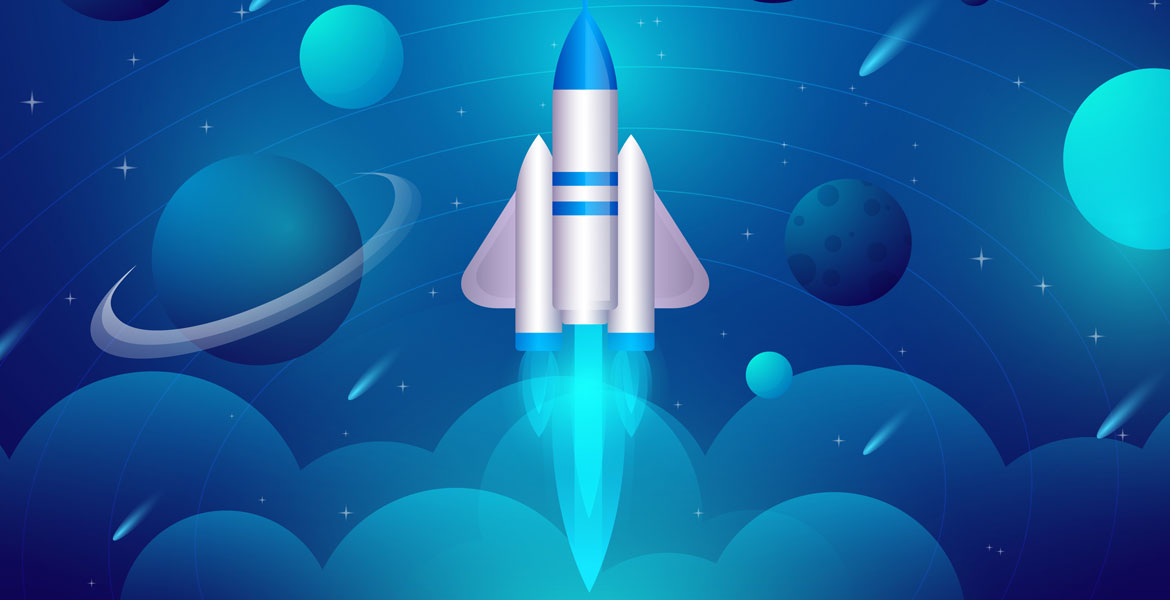
With the vast amount of data generated by space missions, AI algorithms have become essential in analyzing and interpreting this data. Below are some of the applications of AI in space:
- Autonomous spacecraft. AI is used to control spacecraft and make them autonomous. The spacecraft can learn from their surroundings and make decisions on their own without human intervention.
- Image processing. AI algorithms are used to process and analyze the images captured by spacecraft cameras. This enables scientists to identify objects, terrain features, and anomalies that would have been difficult to detect using manual methods.
- Predictive maintenance. AI is used to predict the failure of spacecraft components, allowing for maintenance and repairs before a critical failure occurs.
- Mission planning. AI is used to optimize mission planning, ensuring that spacecraft are sent on the most efficient and cost-effective trajectories.
- Mars exploration. AI is being used to help plan and execute missions to Mars. The Mars Exploration Rover mission is an example of a mission that has benefited from AI.
Lastly, the application of AI in space has improved the accuracy, efficiency and effectiveness of space exploration. As the field continues to evolve, it is likely that AI will become an even more critical component of space exploration and discovery.
Application of Artificial Intelligence in IoT
The world of the Internet of Things (IoT) has been greatly impacted by the application of artificial intelligence. AI enables smart devices and systems to learn from the data they collect, making them more efficient and effective in performing their tasks. AI can be used in IoT applications to process large amounts of data generated by various devices and sensors, identify patterns and make predictions.
One of the primary applications of AI in IoT is predictive maintenance. By analyzing data from various sensors and devices, AI can predict when a machine is likely to fail and schedule maintenance accordingly. This approach reduces downtime, saves costs and increases the lifespan of the machine.
Artificial intelligence can also be used in IoT to optimize energy consumption. Based on data and analysis from various sensors and devices, AI can identify patterns of energy usage and provide insights into how to reduce energy consumption.
Another application is in the field of smart homes. With the help of AI, smart homes can learn the behavior of the occupants and adjust settings accordingly. For example, smart thermostats can learn when the occupants are likely to be at home and adjust the temperature in time.
In summary, the application of AI in IoT has numerous benefits, including predictive maintenance, energy optimization and home automation. AI enables IoT systems to process large amounts of data, identify patterns and make predictions that can lead to increased efficiency, reduced costs and improved user experience.
Application of Artificial Intelligence in the Food Industry
AI has brought significant transformations to the food industry, revolutionizing various aspects of food production, processing, and consumption. Here are 6 examples of how AI is making an impact:
- Food safety and quality. Artificial intelligence can detect contaminants, such as bacteria and foreign objects, in food products. This helps in ensuring food safety and quality control throughout the supply chain.
- Allergy awareness. AI algorithms accurately detect potential allergens and cross-contamination risks. They also aid in minimizing the risk of cross-contamination during food processing, ensuring accurate allergen labeling, providing personalized recommendations, and analyzing data to identify emerging allergenic risks.
- Supply chain optimization. AI algorithms optimize inventory management, demand forecasting, and logistics. This reduces waste, minimizes costs, and ensures timely delivery of fresh products.
- Food creation and recipe development. AI can generate new recipes by analyzing large databases of ingredients and flavor profiles. It can also create innovative food products by simulating taste and texture using machine learning techniques.
- Menu optimization. Artificial intelligence can analyze customer feedback, social media trends, and sales data to identify popular dishes, ingredients, and flavor combinations. This helps restaurants create and refine menus that align with customer preferences and market trends, increasing customer satisfaction and profitability.
- Personalized nutrition. AI-based platforms analyze individuals’ dietary preferences, health data, and genetic information to provide personalized nutrition recommendations. This helps individuals make informed choices based on their specific needs.
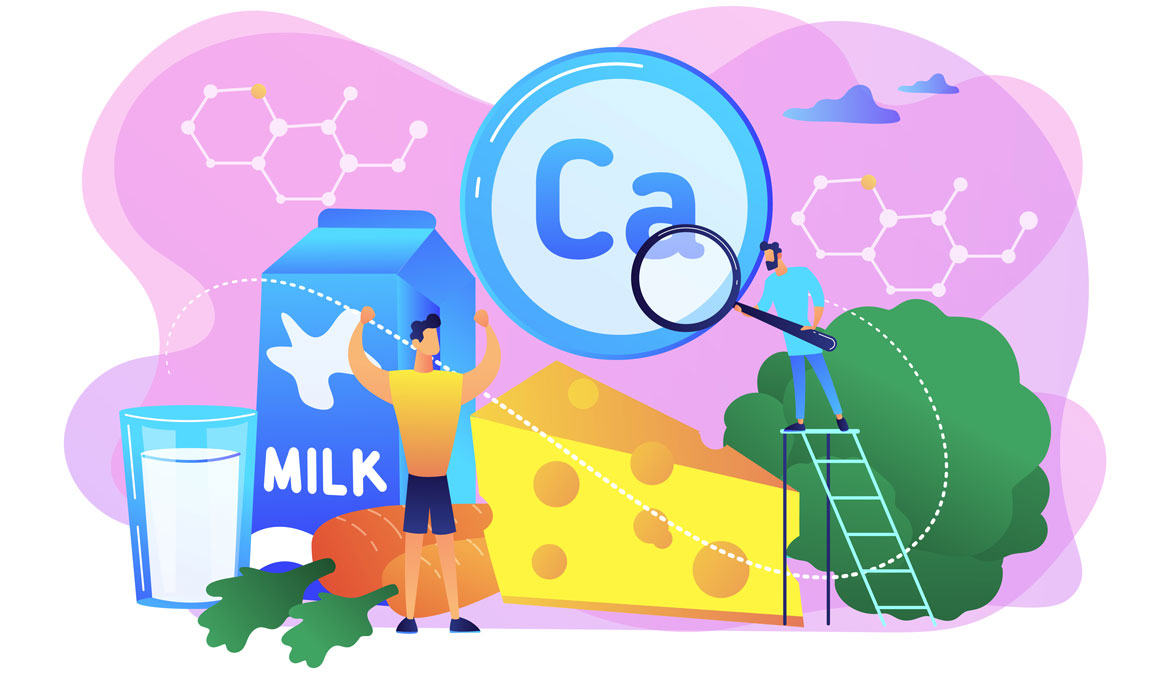
When it comes to food preferences, having a mobile app that can cater to individual needs and provide personalized recommendations is invaluable. That’s where UMA comes in. UMA (Universal Meal Assistant) is a digital menu app that enables users to track food intolerances and check the nutritional value of food items.
UMA understands that each person has unique dietary requirements, whether it’s due to allergies, intolerances, or specific nutritional goals. With UMA, users can effortlessly find allergens in dishes, track food intolerances, and check the nutritional value of their meals.
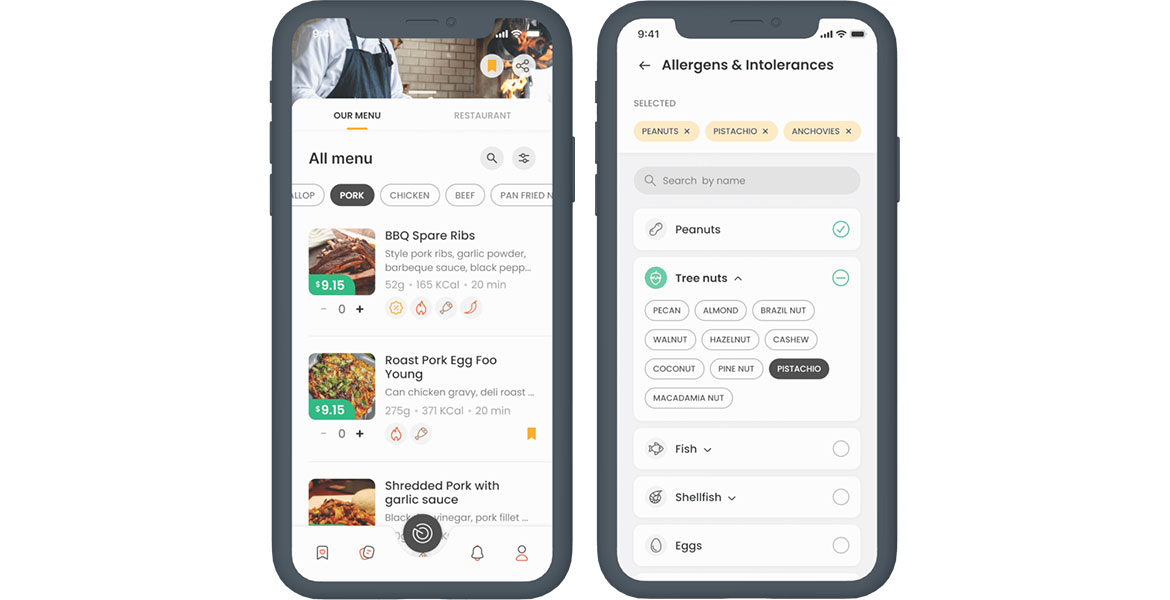
Gone are the days of struggling to decipher unfamiliar ingredients or worrying about accidentally consuming something that may trigger an allergic reaction. UMA built-in SCAN tool allows users to effortlessly scan and translate restaurant menus with just a one click.
Whether you have food allergies, intolerances, or simply want to make healthier choices, UMA app is the universal meal assistant for you.
Download UMA (App Store, Google Play) now and unlock a world of personalized dining, where your food preferences and needs are always prioritized.
Conclusion
Artificial Intelligence is transforming and revolutionizing our daily lives in many ways. It is being used across various industries, including healthcare, finance, education, manufacturing, transportation and more. AI can help us make more informed and smarter decisions, improve efficiency and enhance overall user experience.
While AI offers many benefits, it is important to recognize that it is not a replacement for human intelligence. AI systems still require human oversight and their outputs should be carefully analyzed and evaluated. Additionally, there are concerns about privacy, security and the potential for AI to exacerbate existing societal inequalities.
In general, AI has the potential to greatly improve our real life, but it is important to approach its implementation with caution and ensure that it is used ethically and responsibly.


